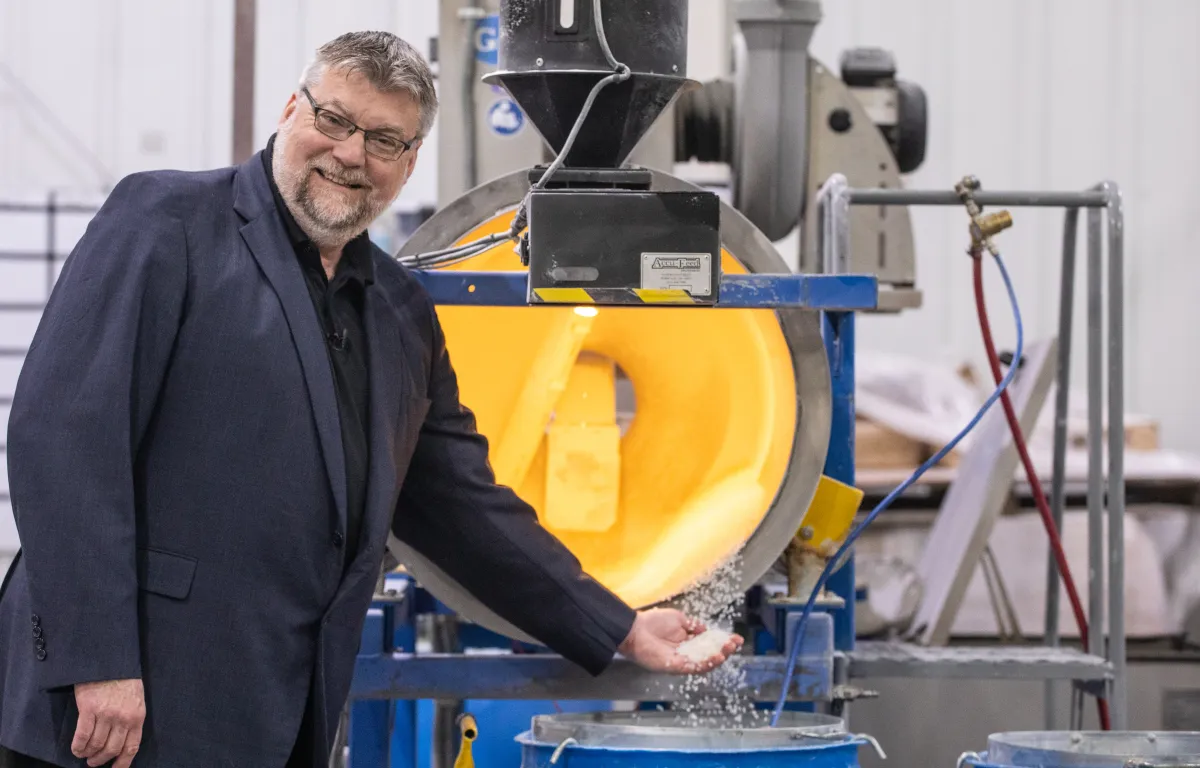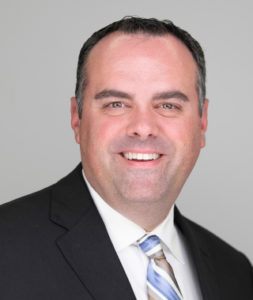
#1 Credit Union for SBA 7a Loan Volume in
2023/2024 in Washington and Oregon
Benefits of Our SBA Lending
Our SBA Relationship Managers work with you one-on-one to find the right products that fit your business needs. We are a not-for-profit credit union and a Preferred Lending Provider (PLP) with the Small Business Administration (SBA).
- Leaves more cash in your business account with lower down payment options
- Lower payments with longer loan terms
- No balloon payments
- Finance Goodwill/Intangible assets in Business Acquisition Purchases

Industry Specialties

- Adult Care & Rehabilitation
- Car Washes
- Manufacturing
- Gas Station/C-Stores
- Auto Repair & Auto Body
- CPA/Accounting
- Self Storage
- Medical
- Dental | Chiropractic
- Physical Therapy
- Veterinary
- HVAC/Plumbing/Electrical
SBA Loan Products
Gesa Business Express
7(a) Business Loan
Express Lines of Credit
504 Loan
MARC Lines of Credit
Working Capital Pilot
Gesa Business Express

The SBA Gesa Business Express program is perfect for business needs under $350,000.
How it can be used
- Line of credit for working capital
- Purchase new or used equipment
Benefits
- Quick application process with expedited funding
- No Prepayment penalty
- Up to a 10-year term
Qualifications
- Minimum 2 years in business
- Credit Score above 680
- Flexible collateral requirements
×
7(a) Business Loan

Low down payment requirements and longer terms makes this the SBA’s most popular loan program.
How it can be used
- Acquiring an existing business
- Purchase, construct or renovate owner-occupied commercial real estate
- Long-term working capital
- Purchase vehicles & equipment
- Purchase inventory
- Tenant improvements
- Refinance debt
- Franchise financing
Benefits
- Terms up to 10 years for business acquisitions, equipment and working capital
- Terms up to 25 years when commercial real-estate is involved (blended maturity can apply)
- Loan amounts up to $5 Million
Express Lines of Credit

A simple way to receive expedited financing for your small business. Lines of Credit up to $500,000.
How it can be used
- Short-term working capital
- Purchase inventory
Benefits:
- Competitive interest rates
- Interest only on what you use
- Maturities up to 10 years
- Quick underwriting and approval
- No annual fee
504 Loan

How it can be used
- Low as 10% down payment
- Loan amounts up to $15 Million
- Fixed rate with no balloon payment for up to 40% of the loan amount. (50% when refinancing)
- Declining prepayment penalty
Benefits
- Purchase, construct or renovate owner-occupied commercial real estate
- Long term, high-cost equipment
- Refinance current owner occupied commercial real estate debt
MARC Lines of Credit

The MARC (Manufacturers’ Access to Revolving Credit) program is specifically tailored for manufacturers classified under NAICS codes 31-33. It offers revolving lines of credit or term loans of up to $5 million.
Key Features
- Loan Size: Up to $5 million
- Use of Proceeds: Working capital only
- Structure: Revolving line of credit or term loan
- The Line of Credit can have a term up to 10 years revolving with an additional 10-year automatic term out period.
- Collateral: Mandatory liens on accounts receivable, inventory and other business assets including a blanket UCC filing
- Servicing: Annual reviews, Debt Service Coverage Ratio testing, and collateral monitoring
- Eligibility: Small manufacturers under NAICS 31-33
×
Working Capital Pilot

The Working Capital Pilot program offers lines of credit up to $5 million that can be used for both domestic and international transactions. There are two main features of the program: asset-based lending and transaction-based financing. Asset-based WCP loans allow businesses to borrow against their existing assets, while transaction-based financing provides funding earlier in the sales cycle for specific projects. This pilot program is designed to be more flexible and adaptable to the needs of modern small businesses.
Benefits
- Increase your current line of credit to a larger line under this program
- Low flexible SBA fee
- Up to 60-month term with annual line renewal
Qualifications
- Must be in business greater than 12 months
×
Our relationship managers are here to help.
Our resource library
Government loans are complicated, we have answers
We’ve created a resource center to guide you through the government loan application process. Our materials are designed to be easy to understand, even if you’re new to this type of assistance.

How else Gesa Commercial can help
Routing Number: 325181248
51 Gage Blvd. Richland, WA 99352
Federally insured by NCUA

Equal Housing Opportunity
Co-op Shared
Branch
© Gesa Credit Union. All Rights Reserved.
Copied to clipboard
You are leaving gesa.com
We are redirecting you to an external website
You are being redirected to a site that is not operated by Gesa Credit Union.
Gesa is not responsible for the content of the site, nor does Gesa represent the site or the Gesa member if the member decides to act upon or enter into a transaction with the site.
Privacy and security policies of the site may differ from those of Gesa Credit Union.
Facing an unexpected financial emergency?
We offer a range of relief options to ease short-term stress and support you.
People helping people.
Gesa credit union is committed to making a positive impact in the communities we serve.

All debit cards give back to your community
when you swipe.
when you swipe.
We’re in the business of growing yours.
We have the accounts, products, and services to help you and your small business succeed.

Banking made
for you.
for you.
With best-in-class rates and a variety of everyday banking products, Gesa has the right account, card, or loan for you.

Routing Number 325181248
We have upgraded to a new account opening process. Click Get Started to continue.
Getting started is easy!
Applying should only take a few minutes. Please have these documents ready:
- Social Security Number (SSN)
- Color copy of driver's license, state ID, or US Passport
- Contact info
-
Opening deposit by debit card or e-transfer*
*Credit cards are not accepted.
Call (888) 946-4372 or apply at a branch
Already a member?
Use your online banking log-in to pre-fill your application with saved information.
You can easily change your debit card through our affinity form.
Notes & Fees Glossary
| Disclaimer | ||
|---|---|---|
| SmartPlus Checking | [APY] Minimum opening balance of $25 required if the account is opened online. In order to earn APY and receive unlimited domestic ATM fee refunds, you must meet the following requirements during each monthly qualifying period: provide and maintain valid email address, apply for and use your Visa debit card to make 15 debit card transactions that post and settle to your account, have at least one direct deposit of $200 or more post to your account, and enroll to receive eStatements. If the requirements are not met during the monthly qualifying period, the “non-qualifying” 0.01% APY will apply to the entire balance. Dividends on a SmartPlus Checking account will be compounded and credited to a member’s account each month. Dividends are calculated using the daily balance method. Qualifying account balances must meet minimum requirements. Rate may change after the account is opened. The qualifying period begins with the first day of the calendar month and ends on the last day of the calendar month at 6:00 P.M. Pacific Time. ATM fees of $4.99 or less will be reimbursed up to a maximum of $4.99 per individual transaction. No monthly fees and no minimum balance required to open or maintain account unless opened online. Fees could reduce earnings on the account. Limit of one SmartPlus Checking account per member. APY is accurate as of , the last dividend declaration date. | A7KD4W9LQXZT |
| Smart Checking | *There is a minimum opening balance requirement of $25.00 if the account is opened online. Regular users of Gesa’s electronic services may want to consider SmartPlus Checking for additional benefits. [Courtesy Pay] | M3VY82CNRLKP |
| Student Checking | [APY] Dividends on Student Checking Accounts are calculated using the daily balance method and will be credited to the member’s account every month. Rate may change after the account is opened. If you close your account before dividends are paid, you will not receive the accrued dividends. The minimum balance to open an account is $5.00, the par value of a share. Courtesy Pay is not offered on Student Checking Accounts. Only electronic transactions such as debit card or ACH transactions are permitted. Fees could reduce earnings on the accounts. | JXZ7V5MWLQ92 |
| Smartplus Savings | [APY] In order to earn a high dividend rate, you must meet the following requirements during the qualifying monthly period: a) provide and maintain a valid email address; and b) be enrolled to receive e-statements. If the requirements are not met during the monthly qualifying period, the “non-qualifying” 0.01% APY would apply to the entire balance. Dividends on an SmartPlus Savings Account will be compounded and credited to a member’s account each month. Dividends are calculated using the daily balance method. Qualifying account balances must meet minimum requirements. Rate may change after the account is opened. The qualifying period begins with the first day of the calendar month and ends on the last day of the calendar month at 6:00 P.M. Pacific Time. No monthly fees and no minimum balance required to maintain account. Minimum opening deposit of $5. Fees could reduce earnings. Limited to one SmartPlus Savings account per member. | P9T6QF2XJBLC |
| Smart Savings | [APY] Dividends on Smart Savings are calculated using the daily balance method and are paid monthly. Rate may change after the account is opened. No monthly fees and no minimum balance required to maintain account. Minimum opening deposit of $5. Fees could reduce earnings on the account. | Y4MKZ3WVTPQ8 |
| High-Yield Savings | [APY] Dividends on the High Yield Savings account are calculated using the daily balance method and are paid monthly. No monthly fees and no minimum balance required to maintain account. Minimum opening deposit of $5. Fees could reduce earnings. | NDLXQ98R5VTE |
| Money Market | [APY] Dividends for the Money Market Account are calculated using the daily balance method which applies a daily periodic rate to the balance in the account each day. You must maintain a minimum daily balance of $2,500.00 in your account each day to obtain the disclosed annual percentage yield. The minimum balance required to open this account is $2,500.00. There is a minimum average daily balance of $2,500.00 required to avoid a service fee for the calendar month. If the minimum average daily balance requirement is not met, you will be charged a service fee as stated in the Consumer Fee Schedule. New rates are set on the first of each month; rate may change after the account is opened. Fees could reduce earnings on the account. | GQ37ZVKY1WLM |
| Fixed Certificate | [APY] A penalty may be imposed for early withdrawal. Fees may reduce earnings. The minimum balance to open the certificate is stated in the chart. Early withdrawal penalties apply (a penalty may be imposed for withdrawals before maturity): If your account has an original maturity (term) of less than 12-months: The penalty will equal 90 days interest on the amount withdrawn subject to penalty. If your account has an original maturity (term) of 12-months or more – up to, but less than 36-months: The penalty will equal 180 days interest on the amount withdrawn subject to penalty. If your account has an original maturity of 36-months or more – up to, but less than 48-months: The penalty will equal 365 days interest on the amount withdrawn subject to penalty. If your account has an original maturity of 48-months or greater: The penalty will equal 540 days interest on the amount withdrawn subject to penalty. In certain circumstances such as the death or incompetence of an owner of this account, the law permits, or in some cases requires, the waiver of the early withdrawal penalty. For any account which earns an interest rate that may vary during the term such as a bump certificate, the interest rate we will use to calculate this early withdrawal penalty will be the interest rate in effect at the time of the withdrawal. You may make withdrawals of principal from your account before maturity. In making such withdrawals, your balance may not fall below the minimum or we will close your account. Principal withdrawn before maturity is included in the amount subject to early withdrawal penalty. You can withdraw interest only on the crediting dates without penalty. A $500 minimum deposit is required for consumer, IRA, and business certificates. Early withdrawal penalties may apply and may reduce earnings. Certificate rate is for a limited time only and could end at any time. Stated rate as of the first day of the month. | H85PLKJXZ2QM |
| Bump Certificate | [APY] A penalty may be imposed for early withdrawal. Fees may reduce earnings. The minimum balance to open the certificate is stated in the chart. The Certificate owner must contact Gesa Credit Union to request the one-time rate increase on Bump Certificate accounts. The rate on the Bump Certificate will be changed on the following business day of the date Gesa Credit Union receives the request. The bump option can only be exercised once during the term of the Certificate and does not increase the term of the certificate. The new interest will not be applied retroactively. The new interest rate will be the interest rate we are then offering on regular certificates (non- bump rate certificates) that have the same term and minimum balance. Bump Certificates are only available for consumer and IRA Certificates. Early withdrawal penalties will apply. Minimum deposit balance must be maintained to earn APY and fees may reduce earnings on the account. Special offer for a limited time only. | RXNQ72MLYV9C |



